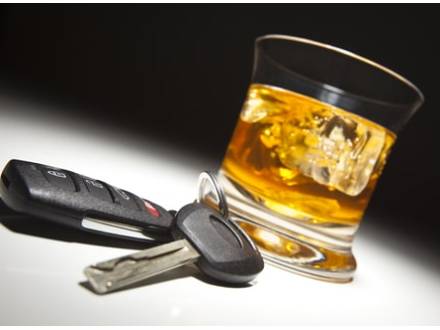What You Need to Know About New California DUI Laws
 Although California already has fairly strict DUI laws, some became even harsher on the first day of 2025. Some of the amendments simply clarify administrative penalties, courtroom consequences of refusing a blood test, and legal procedures, while others change penalties associated with a DUI conviction. If you are facing DUI charges in the state, you should take these charges very seriously. An experienced Sonoma, CA DUI lawyer can help you navigate the new and old rules while answering your questions regarding the DUI trial process.
Although California already has fairly strict DUI laws, some became even harsher on the first day of 2025. Some of the amendments simply clarify administrative penalties, courtroom consequences of refusing a blood test, and legal procedures, while others change penalties associated with a DUI conviction. If you are facing DUI charges in the state, you should take these charges very seriously. An experienced Sonoma, CA DUI lawyer can help you navigate the new and old rules while answering your questions regarding the DUI trial process.
What Are Some of the Changes to California DUI Laws?
In the past, refusal of a blood test could lead to enhanced criminal penalties, such as additional jail time. Recent amendments removed the criminal penalties for blood test refusals, although breath and urine test refusals still result in enhanced DUI penalties. Despite this change regarding blood test refusals, a refusal can still be used as evidence in court, which can negatively affect a DUI case. Refusing a breath or urine test results in an immediate driver’s license suspension.
The new laws require mandatory alcohol education programs for every DUI offender who is convicted of the offense, including first-time offenders. A DUI offender who is given probation will be required to have an Ignition Interlock Device installed in his or her vehicle. The costs for the IIDs are paid by the offender and include an installation fee and a monthly fee that can range from $60 to $130, although there are some programs for those with lower incomes.
Rideshare drivers now have a lower legal BAC limit of 0.04 percent, aligning it with that of CDL drivers. A third-time DUI offender will now face a mandatory minimum of 120 days in jail – an increase from the prior 90 days. Second and third-time DUI offenders could now face a driver’s license suspension under certain circumstances for up to two years. The state now has high-tech tools for roadside drug testing that quickly test not only for alcohol but also for marijuana, opioids, and other drugs.
What Are the Penalties for a DUI Conviction?
A first-time DUI offender in the state will receive at least 96 hours in jail, or as much as six months in jail. Fines can range from $400 to $1,000. If convicted of a second DUI, the offender will face a minimum jail time of 90 days, up to a maximum of one year, with the same fine range as for a first-time DUI.
A third DUI within ten years is charged as a felony rather than a misdemeanor. A person convicted of these felony DUI charges will face a minimum of 120 days in jail, with the potential for up to one year in jail, and the same fines as for a first or second DUI conviction.
Do Not Forget About the Administrative Penalties
Administrative penalties are separate from criminal penalties and are imposed by the California Department of Motor Vehicles. A driver charged with DUI has 10 days from the date of the charges to request a DMV hearing, challenging the automatic suspension of the driver’s license. Missing this deadline will result in an automatic license suspension, regardless of how the criminal DUI case turns out.
Contact a San Francisco, CA DUI Lawyer
If you are facing DUI charges, the sooner you speak to a Napa, CA DUI attorney from Burglin Law Offices, P.C., the better outcome you are likely to have. Your attorney can challenge the legality of your DUI arrest and fight on your behalf to keep your license at the DMV hearing.
Attorney Burglin has represented more than 5,000 clients charged with DUI and has been lead counsel in more than 120 DUI jury trials. As a graduate of the University of Indiana’s comprehensive course on chemical testing and scientific protocols in DUI cases, Attorney Burglin has 32 years of DUI defense experience. To schedule your free consultation, call 415-729-7300.
 415-729-7300
415-729-7300




